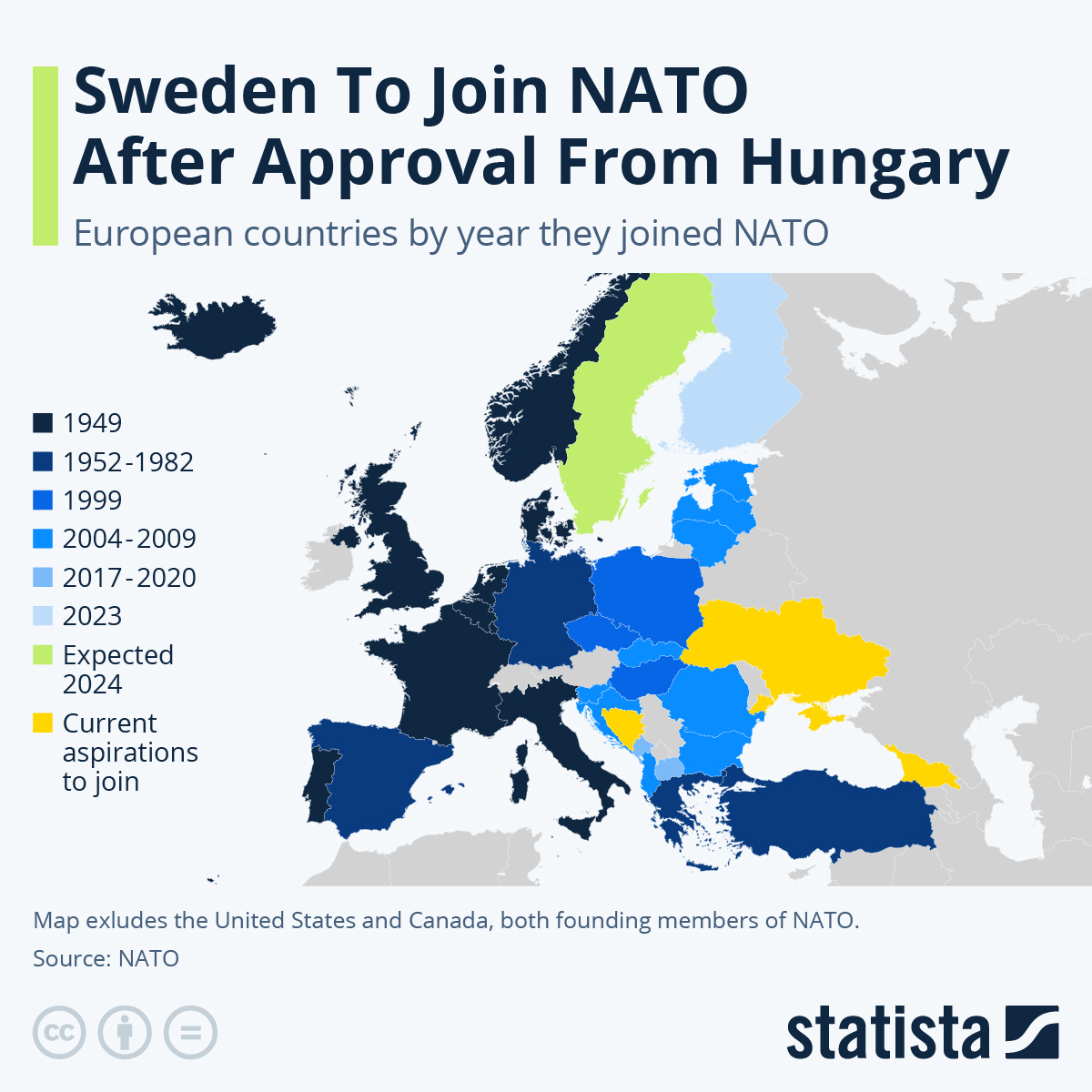After the process of Sweden joining NATO had stalled since 2022 due to Turkey's and Hungary's objections, the latter country's parliament on Monday was the last to clear the way for the Northern European country's accession to the military alliance. Hungarian prime Minister Viktor Orban finally let the motion come to a vote and it passed with an overwhelming majority. He and his party had previously taken issue with Swedish criticism of their governance in Hungary, according to Deutsche Welle.
In April, Sweden's neighbor Finland became a member of NATO, also after initial push-back. With Finland's and Sweden's addition, the alliance will be comprised of 30 European nations, Canada and the United States. Finland's accession had roughly doubled NATO's border with Russia, which threatened to take "counter-measures" and described the accession as an "encroachment on Russia's security and national interests." While Sweden shares no border with Russia, a reorganization of Russian military districts Monday can be seen as a reaction to the change, as it centralizes Northwestern Russian military zones.
Even before the invasion of Ukraine, Russian President Vladimir Putin has repeatedly brought up the topic of NATO in connection to the country. Ukraine is currently one of three nations with a declared aspiration to join the treaty, having officially applied for fast-track accession in September 2022.
NATO's eastward expansion has been a thorn in Putin’s side for a long time. “Any further NATO movement to the east is unacceptable", Putin said in December 2021, two months before the invasion began. "Putin wanted less NATO along his borders," NATO Secretary General Jens Stoltenberg said in a statement ahead of Finland formally joining NATO in April. "He is getting exactly the opposite. He is getting more troops, more readiness, more forces, land, sea and air in the eastern part of the Alliance. And he is getting more members."
NATO’s declared open door policy included in its founding treaty is generally making membership an option for European sovereign nations. The organization that started out in 1949 among 12 nations has since then attracted new members, especially in the past two decades, from Eastern Europe and the Balkans.





















